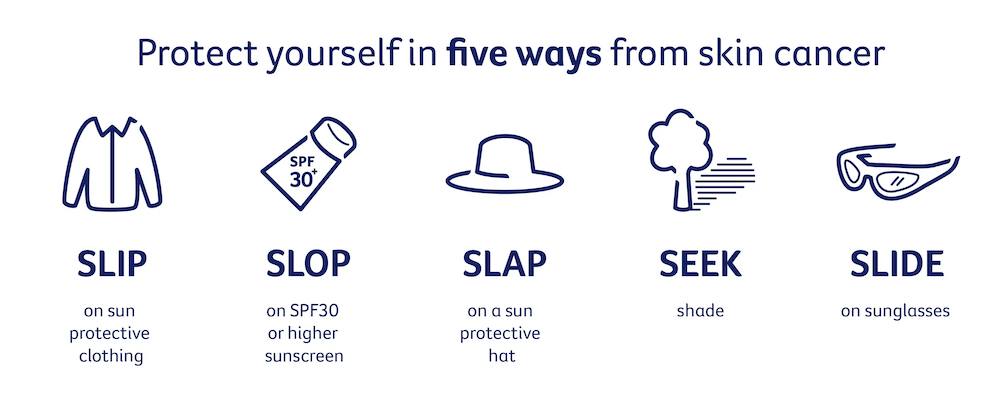
06 Jan Protect yourself from Skin Cancer | Lisa’s story
Protect yourself from Skin Cancer.
As our newly appointed Education Administration Officer, and having recently worked as a primary school teacher, Lisa Pechotsch knows all too well the importance of education, whether it is on or off duty.
Lisa was diagnosed with melanoma in 2020, aged 36.
“After a colleague’s son was diagnosed with melanoma a few years ago, I have been proactive in having skin checks carried out and have done so for the past 5-6 years,” Lisa said. However, she stresses that it’s important for everybody to monitor their own body health and any changes, as her melanoma and more recently a basal cell carcinoma had been biopsied despite not showing obvious markers during the skin checks.
“It’s important to get to know your skin and what is normal for you, so that you notice any changes. Skin cancers rarely hurt and are much more frequently seen than felt.” Lisa said.
The sooner a skin cancer is identified and treated, the better your chance of avoiding surgery or, in the case of a serious melanoma or other skin cancer, potential disfigurement or even death.
It is also a good idea to talk to your doctor about your level of risk and for advice on early detection.
In Lisa’s case minor surgery was required to remove the abnormal cells, but even though the skin cancer appeared as a small freckle on Lisa’s face, a large cut was still required to remove it all.
Lisa is now required to have six-monthly skin checks.
“I am very cautious about sun safety: wearing sunscreen year-round and wearing a hat in the sun following both cancer scares. It’s all about being SunSmart – we all know the slogan: Slip, Slop, Slap, Seek and Slide, but it’s about actually doing it,” Lisa said.

Blaming teenage carelessness for most of the damage, she urges everybody to develop a regular habit of checking their skin for new spots and changes to existing freckles or moles.
For an initial skin check, please call the Timboon Clinic on 5558 6088 to make an appointment.
For more information on how you can reduce your skin cancer risk visit the Cancer Council website.


No Comments